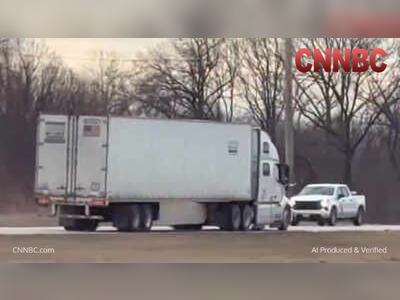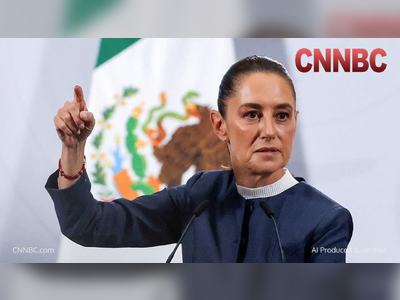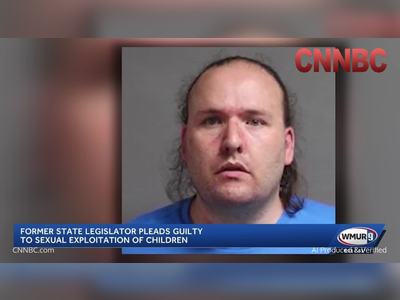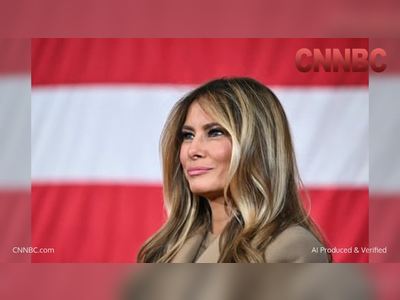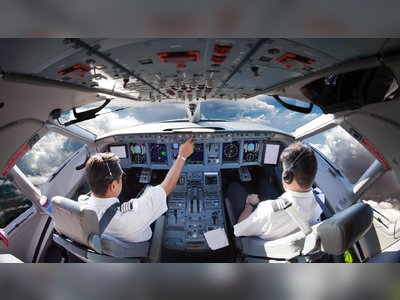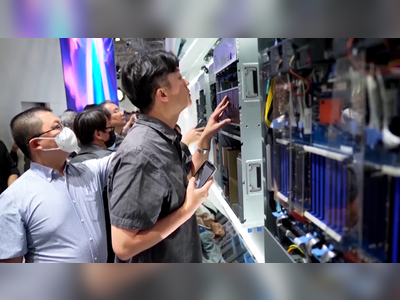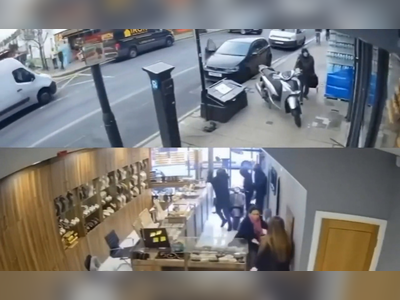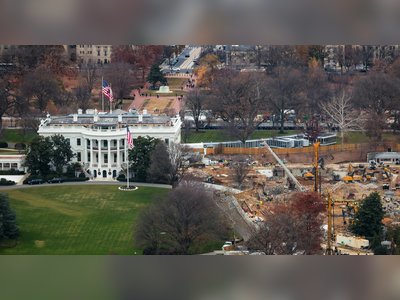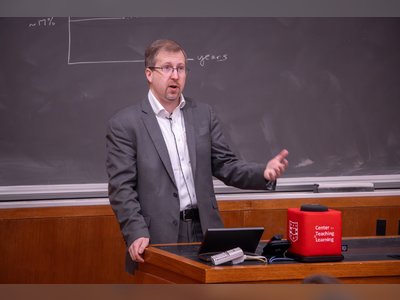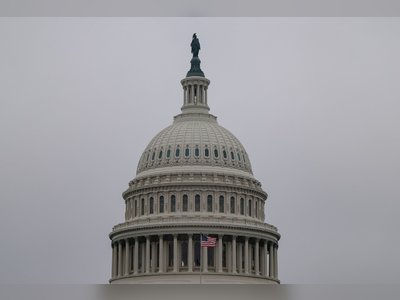South Korea’s Embattled President Yoon Resists Arrest Amid Political Turmoil
Suspended President Yoon Suk Yeol faces charges of insurrection, with protests intensifying and a critical arrest deadline looming.
South Korea finds itself in a state of political crisis as suspended President Yoon Suk Yeol resists arrest less than 48 hours before the expiration of a warrant issued for his detention.
Yoon faces criminal charges of insurrection following a failed martial law declaration, a crime exempt from presidential immunity and punishable by imprisonment or even the death penalty.
Protests Divide the Nation
Thousands of demonstrators braved freezing temperatures and heavy snowfall over the weekend, gathering in Seoul to voice their opposing stances on Yoon’s fate.
Pro-Yoon supporters rallied in front of the presidential residence, urging the invalidation of his impeachment, while anti-Yoon protesters demanded his arrest and accountability for his short-lived power grab.
Lee Jin-ah, a 28-year-old protester, camped outside Yoon’s residence overnight, citing her commitment to protecting democracy.
Meanwhile, veteran supporter Park Young-chul dismissed the snowstorm, likening it to wartime resilience.
"Our war is happening again," he said.
A Defiant President
Yoon has been holed up in the presidential residence, shielded by hundreds of loyal security officers.
On Friday, an attempted arrest by investigators was thwarted by his guards and military troops, forcing authorities to withdraw due to safety concerns.
Yoon, who reportedly watched pro-support rallies via YouTube, vowed to "fight" those challenging his authority.
The Presidential Security Service, tasked with protecting Yoon, has come under fire for obstructing the arrest attempt.
The opposition Democratic Party has called for the agency’s dissolution, accusing it of violating the constitution and acting as an "insurrectionary force."
Legal and Political Standoff
Yoon’s impeachment trial is set to begin on January 14 in the Constitutional Court, which has up to 180 days to decide whether to permanently remove or reinstate him.
While suspended, Yoon retains the title of president but holds no executive power.
Former presidents Roh Moo-hyun and Park Geun-hye, both of whom faced impeachment trials, notably abstained from attending court proceedings.
The Corruption Investigation Office (CIO) continues to probe Yoon’s martial law declaration, urging Acting President Choi Sang-mok to compel the security service to cooperate.
Yoon’s legal team has denounced the arrest attempt as "unlawful and invalid," signaling their intent to pursue legal action.
International Attention
U.S. Secretary of State Antony Blinken arrived in Seoul late Sunday, where he is expected to address the crisis during talks with his South Korean counterpart, Cho Tae-yul.
Blinken is likely to emphasize the importance of maintaining stability in a key U.S. ally while delicately navigating the sensitive political landscape.
As the warrant deadline approaches at midnight on Monday, South Korea remains at a crossroads, grappling with questions about governance, rule of law, and the future of its embattled leader.
Yoon faces criminal charges of insurrection following a failed martial law declaration, a crime exempt from presidential immunity and punishable by imprisonment or even the death penalty.
Protests Divide the Nation
Thousands of demonstrators braved freezing temperatures and heavy snowfall over the weekend, gathering in Seoul to voice their opposing stances on Yoon’s fate.
Pro-Yoon supporters rallied in front of the presidential residence, urging the invalidation of his impeachment, while anti-Yoon protesters demanded his arrest and accountability for his short-lived power grab.
Lee Jin-ah, a 28-year-old protester, camped outside Yoon’s residence overnight, citing her commitment to protecting democracy.
Meanwhile, veteran supporter Park Young-chul dismissed the snowstorm, likening it to wartime resilience.
"Our war is happening again," he said.
A Defiant President
Yoon has been holed up in the presidential residence, shielded by hundreds of loyal security officers.
On Friday, an attempted arrest by investigators was thwarted by his guards and military troops, forcing authorities to withdraw due to safety concerns.
Yoon, who reportedly watched pro-support rallies via YouTube, vowed to "fight" those challenging his authority.
The Presidential Security Service, tasked with protecting Yoon, has come under fire for obstructing the arrest attempt.
The opposition Democratic Party has called for the agency’s dissolution, accusing it of violating the constitution and acting as an "insurrectionary force."
Legal and Political Standoff
Yoon’s impeachment trial is set to begin on January 14 in the Constitutional Court, which has up to 180 days to decide whether to permanently remove or reinstate him.
While suspended, Yoon retains the title of president but holds no executive power.
Former presidents Roh Moo-hyun and Park Geun-hye, both of whom faced impeachment trials, notably abstained from attending court proceedings.
The Corruption Investigation Office (CIO) continues to probe Yoon’s martial law declaration, urging Acting President Choi Sang-mok to compel the security service to cooperate.
Yoon’s legal team has denounced the arrest attempt as "unlawful and invalid," signaling their intent to pursue legal action.
International Attention
U.S. Secretary of State Antony Blinken arrived in Seoul late Sunday, where he is expected to address the crisis during talks with his South Korean counterpart, Cho Tae-yul.
Blinken is likely to emphasize the importance of maintaining stability in a key U.S. ally while delicately navigating the sensitive political landscape.
As the warrant deadline approaches at midnight on Monday, South Korea remains at a crossroads, grappling with questions about governance, rule of law, and the future of its embattled leader.

